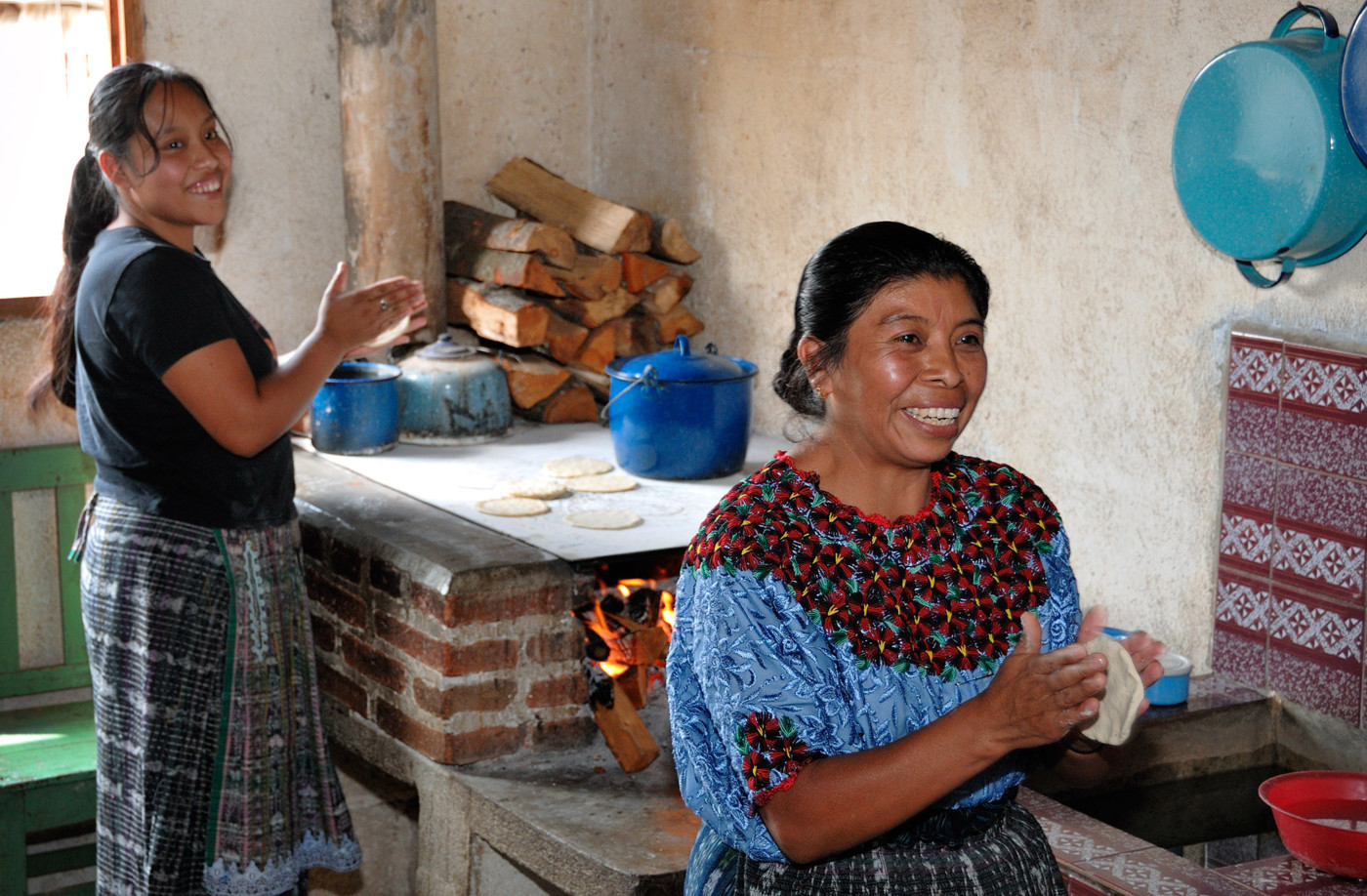
Friendship Bridge clients in Guatemala make tortillas to sell. (Friendship Bridge/Richard Khanlian)
I wrote a blog last week about women’s unpaid contributions to the economy. It was an effort to put a larger perspective onto analyses of taxes, wages, health care costs, etc.
Another way we can see the economy as a women’s issue is by looking at women’s experience of development efforts. Women’s stories are often ignored, but in Banker to the Poor: Micro-Lending and the Battle Against World Poverty, Bangladeshi Muhammad Yunus describes his discovery that small circles of women would support and advise one another, yielding sound profitable results from the investment of a dollar or two. Yunus traveled from village to village, sitting under a tree with the women, opening the possibility of buying chicks or embroidery thread. Village men paid little attention. It was women’s work.
Yunus was a professor and in 1974 he began to test whether it would be possible to extend banking services in rural Bangladesh. One result was the founding of the Grameen Bank, a Nobel Peace Prize winner in 2006 along with Yunus.
Another more complex result was the finding that women made better use of smaller amounts of money and benefited more than men from working in circles, helping one another make business decisions — and resist men’s efforts to take the profits.
Advertisement
A friend of mine, Connie Newton, directed the education arm of Guatemala’s Friendship Bridge microlending project for a dozen years. She says that when there is a death in the family and the woman must host dozens of relatives and neighbors, the other women in the circle will make that month’s payment on her loan. But if her husband takes the money to go drinking, the women will confront him and take the money back.
Connie and Fran Early have written a lovely book, Doing Good ... Says Who?, about economics and development in rural Guatemala. They look at the efforts of U.S. donors as well as Guatemalan leaders, always from the woman’s perspective.
It’s a bigger story than just microlending. For instance, a clinic’s opening is marred by a hex from a neighbor, a doctor’s expensive 30-day diabetes prescriptions, and a director whose contract limits her to two years’ work. The stories are deceptively simple.
Like Yunus, Newton and Early see the whole of the culture and recommend small, incremental steps toward better living conditions.
Doing Good ... Says Who? was published two years ago. Banker to the Poor was published in 1999. But it is the authors’ care in the treatment of their subjects that keeps those books in the front of my mind.







